
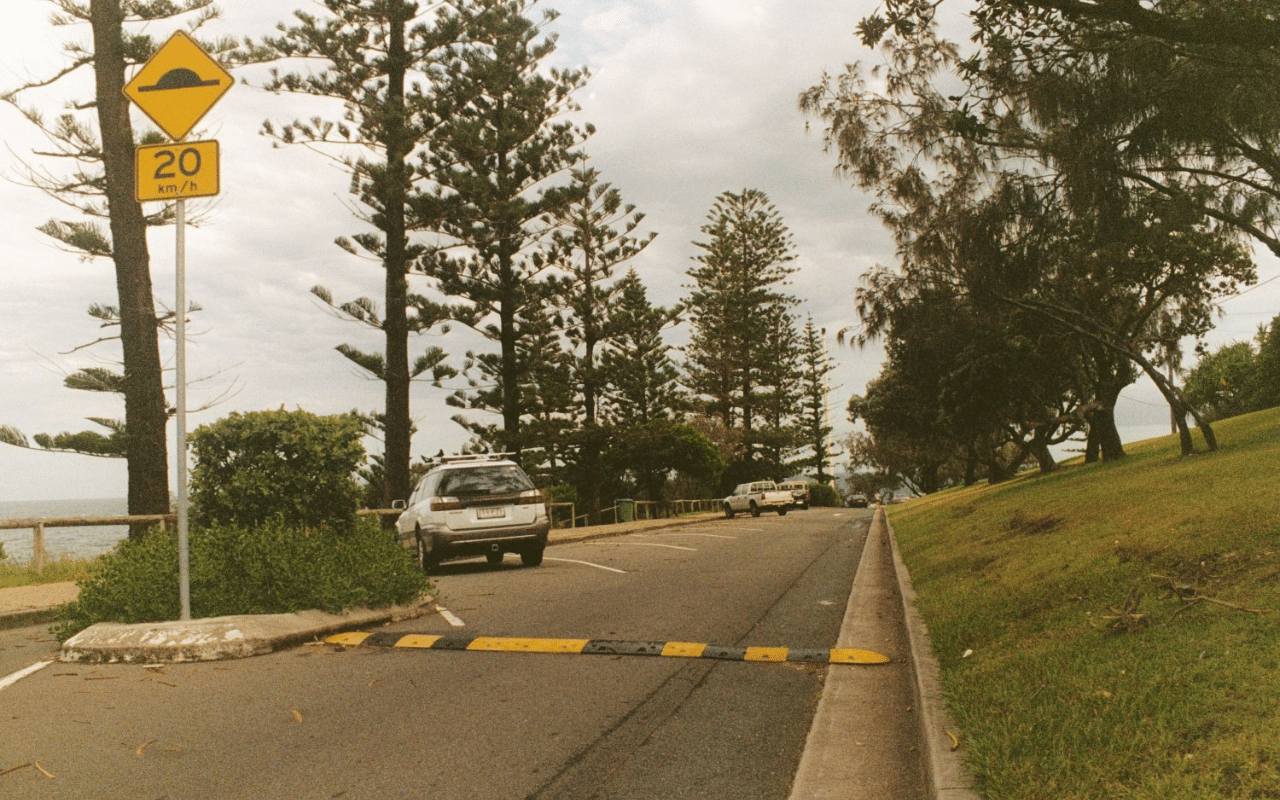
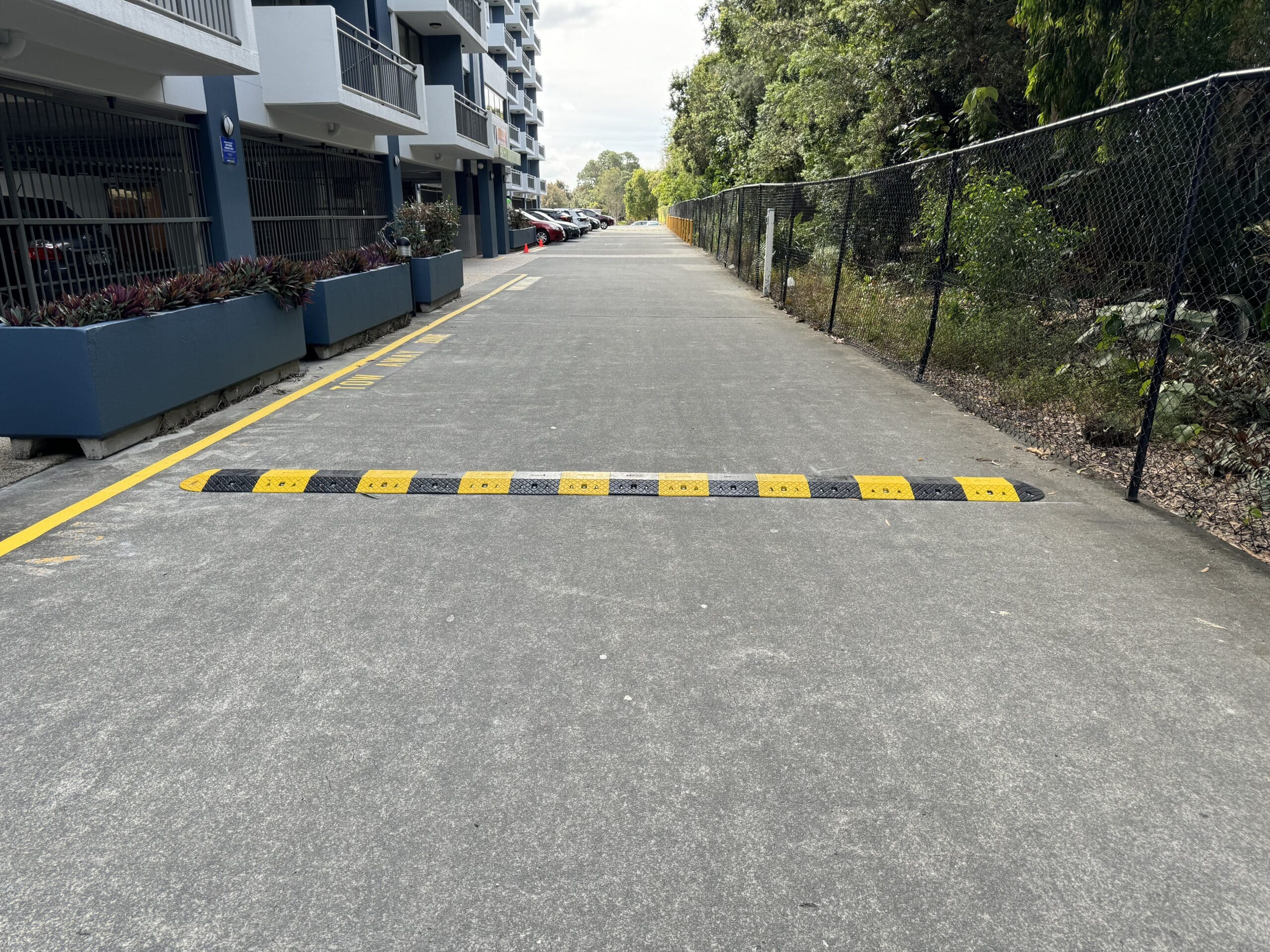
Regarding parking on a speed bump, the laws can seem unclear, and practices vary from place to place. Speed Humps are meant to slow down cars, especially in neighbourhood areas, school zones, and other places where safety is essential. However, one question often arises: Can you park on a speed Hump in Australia?
Parking on a speed bump is generally discouraged because it disrupts its purpose of slowing down cars effectively. A parked vehicle on a speed bump may also present safety hazards, obstructing the flow of traffic and creating confusion for drivers approaching the area. Each state and territory in Australia may have different rules, but there are standard guidelines that make parking on a speed bump undesirable for various safety and logistical reasons.
Parking on a speed hump isn’t typically a direct violation of traffic laws, yet it’s not a good practice. The primary function of speed bumps is to act as a physical measure to control speed. When a vehicle is parked on a speed bump, it can negate this function, allowing other drivers to speed through the area without experiencing the slowing effects intended by the bump.
In cases where cars are parked on or near a speed bump, it can obscure the bump, making it difficult for drivers to notice it until they are very close. This sudden encounter can lead to accidents, especially if the driver is unaware and fails to slow down. Furthermore, parking on or near a speed bump can create congestion and limit visibility for other drivers, especially on narrow streets.
For these reasons, while parking on a speed bump may not be explicitly illegal in every jurisdiction, it is generally discouraged in Australia. Local councils often have specific rules, so it’s wise to check with the relevant authorities regarding particular areas or situations.
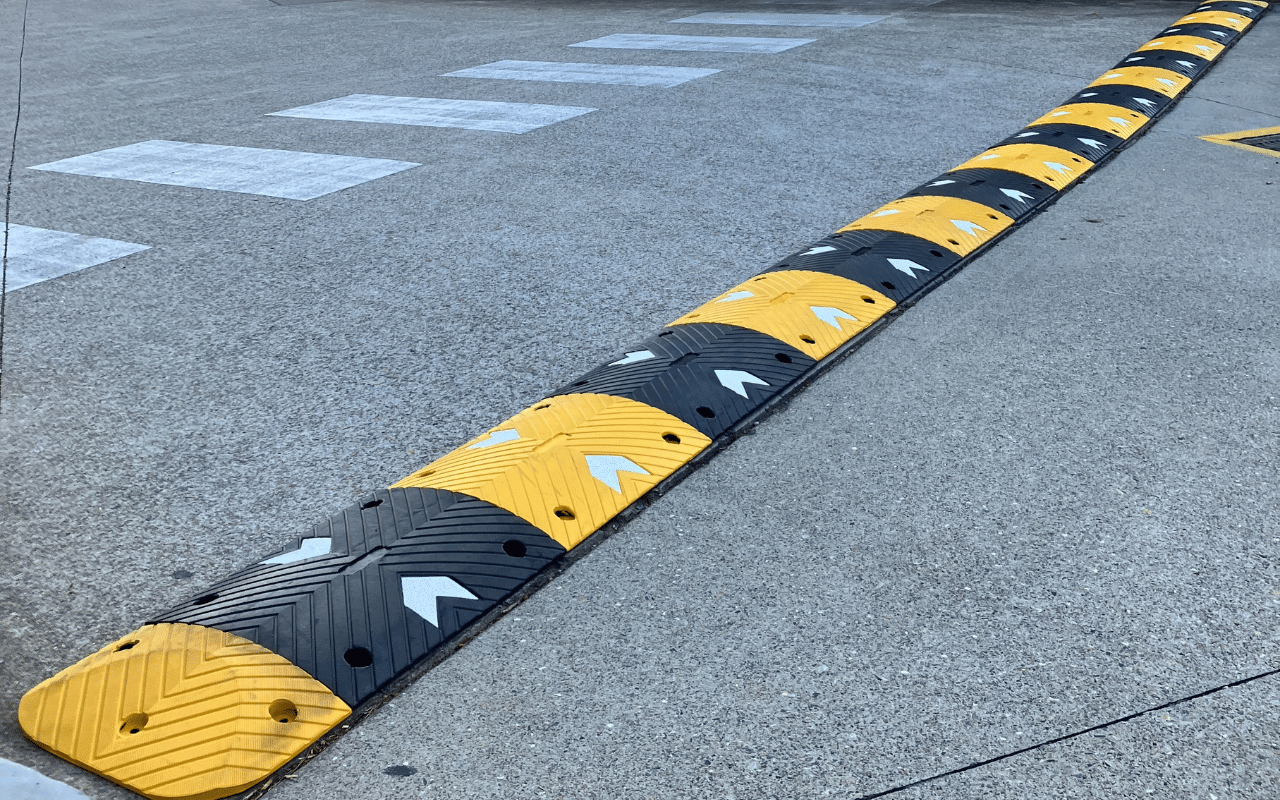
Australia has established specific standards for speed bumps under the AS/NZS 2890.1:2004 and AS 1742.13-2009, which provide detailed guidelines on their design, placement, and maintenance. These standards say that speed bumps should be made of long-lasting materials that can handle being hit by passing cars regularly. For easy identification, they should be painted in high-visibility colours, such as yellow and black.
In addition to the design and visibility requirements, Australian standards recommend that speed bumps should not exceed a height of 75mm to ensure they’re safe and effective for various vehicle types. The angle and height are calculated to reduce vehicle speed without causing excessive discomfort to drivers or damage to vehicles.
Our team at Speed Humps Australia is well-versed in these standards and provides a wide range of products designed to meet or exceed the Australian requirements. By adhering to these standards, we help ensure that speed bumps effectively reduce speed while promoting a safer environment for drivers and pedestrians.
In Queensland, parking laws are strict regarding parking near or opposite a driveway. According to Queensland’s road rules, it is illegal to park on or across driveways, and this rule applies regardless of whether the driveway leads to a private residence, commercial establishment, or public facility. The rules are in place to ensure that vehicles can enter and exit driveways without obstruction and to maintain clear sight lines for drivers.
However, parking opposite a driveway is slightly different. While it’s not illegal in all cases to park directly opposite a driveway, it’s often discouraged. It can lead to fines if the parked vehicle obstructs access to the driveway. It is hazardous to park across from garages on narrow streets or where it is hard to see. This is because it makes it harder for other cars to move safely.
These rules aim to make roads safe and easy to use, and breaking them can lead to fines. When looking for a place to park, it’s safer to be safe than sorry, so don’t park next to or across from entrances. Also, local governments may have extra rules, so it’s a good idea to check with them to determine the specifics.
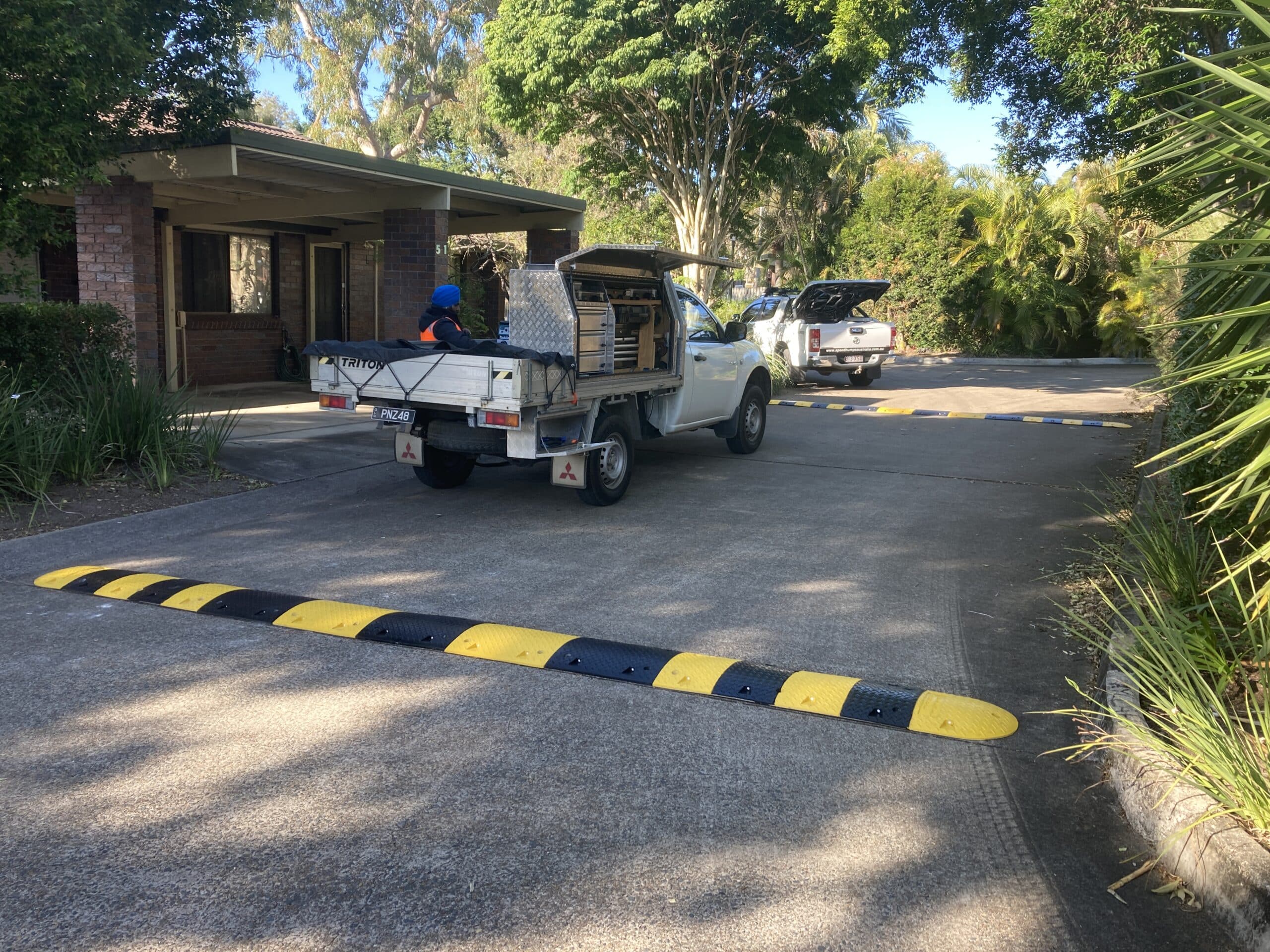
Parking on or near a speed bump may compromise road safety and lead to vehicle damage. Speed Humps are typically built to endure high impacts but aren’t designed to support parked vehicles long-term. This extended weight can cause wear on the bump itself, leading to faster degradation and higher maintenance costs.
Moreover, a car parked on a speed bump can create a hidden obstacle for oncoming vehicles, especially if visibility is low. This unexpected obstruction can confuse drivers and even lead to rear-end collisions. As a best practice, drivers should refrain from parking directly on or near speed bumps to ensure road safety for themselves and others.
Parking on or near speed bumps in Australia is generally discouraged, even if it isn’t strictly illegal in all cases. Understanding the purpose of speed humps, adhering to Australian standards for their design, and respecting local parking rules can create a safer, smoother driving experience for everyone on the road. Following these rules can help keep traffic-calming methods working well and lower the risk of accidents.
For more information on speed hump regulations, installations, or best practices, we at Speed Humps Australia are here to assist. Our focus on high-quality speed humps makes us a leading choice in helping you ensure traffic safety.

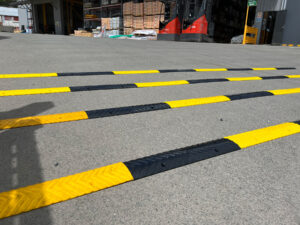

For 10 years, our focus has been on one thing: to provide one style of product and to do it well.
Our wheel stops, speed humps and rumble bars meet Australian Standards, don’t fade, and we’ve never needed to replace one.

For 10 years, our focus has been on one thing: to provide one style of product and to do it well.
Our wheel stops, speed humps and rumble bars meet Australian Standards, don’t fade, and we’ve never needed to replace one.